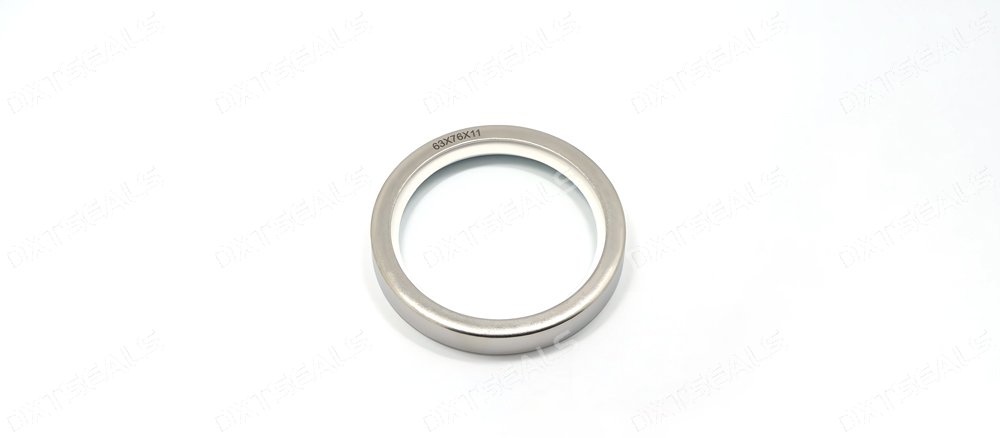
Shaft seals—also known as rotary shaft seals or oil seals—are small but vital components that play a critical role in industrial machinery. Their main function is to provide a dynamic seal between a rotating shaft and a stationary housing, preventing leakage of lubricants while keeping contaminants out.
In this article, we explore how shaft seals work, the principles behind their sealing performance, and why they are indispensable in industrial applications.
🔧 What Is a Shaft Seal?
A shaft seal is designed to seal the space between stationary and moving parts in rotating machinery. It maintains lubrication inside the system and prevents the ingress of dust, dirt, water, or chemicals from the external environment.
Common applications include:
-
Gearboxes
-
Motors
-
Pumps
-
Compressors
-
Hydraulic equipment
🔍 The Sealing Principle Explained
The core mechanism of a shaft seal lies in its elastomeric sealing lip, which is pressed against the shaft surface under radial pressure. The sealing performance depends on several critical factors:
1. Radial Lip Pressure
The primary sealing lip is made of a flexible material (like NBR, FKM, or PTFE) that applies consistent pressure on the rotating shaft. This pressure creates a sealing contact zone to block fluids and particles.
2. Hydrodynamic Sealing
Some advanced shaft seals feature special helix grooves or microstructures that use shaft rotation to pump lubricant inward and repel contaminants outward—improving seal performance under dynamic conditions.
3. Secondary Dust Lip (Optional)
Many shaft seals include a secondary lip to provide additional protection against external dirt or moisture, especially in harsh industrial environments.
⚙️ Materials Used in Shaft Seals
| Material | Temperature Resistance | Fluid Compatibility | Common Use Cases |
|---|---|---|---|
| NBR | -40°C to +100°C | Oils, Grease, Water | General industry |
| FKM | -20°C to +200°C | Fuels, Chemicals, High Heat | Automotive, Chemical Plants |
| PTFE | Up to +250°C | Aggressive Fluids, Dry Run | Food, Pharma, High-Speed Apps |
🏭 Critical Role of Shaft Seals in Industrial Machinery
Shaft seals are not just passive components—they actively contribute to the efficiency, reliability, and longevity of mechanical systems. Here's how:
✅ 1. Preventing Lubricant Leakage
Keeping the lubricant where it belongs ensures smooth operation and prevents costly breakdowns or environmental hazards.
✅ 2. Blocking Contaminants
Dust, dirt, water, and other external agents can cause wear, corrosion, or system failure. Shaft seals act as the first line of defense.
✅ 3. Reducing Downtime and Maintenance Costs
Reliable seals minimize the need for frequent maintenance, improving equipment uptime and overall productivity.
✅ 4. Supporting High-Speed and High-Pressure Applications
With proper design and materials, shaft seals perform under extreme speeds, pressures, and temperature fluctuations.
🛠 Key Design Considerations for Optimal Seal Performance
-
Shaft Surface Finish: A smooth shaft (Ra 0.2–0.8 µm) improves seal life.
-
Installation Tolerance: Incorrect shaft or bore sizing can lead to leaks or damage.
-
Lubrication: Always apply light grease to the lip before installation.
-
Material Selection: Must match fluid, temperature, and rotational speed conditions.
📦 Common Industrial Applications
-
Wind turbines: Sealing rotating shafts in extreme outdoor conditions
-
Food processing: Using PTFE-based seals in hygienic systems
-
Automotive engines: FKM seals for high heat and chemical exposure
-
Hydraulic cylinders: Sealing fluid under pressure to prevent leakage
🔚 Conclusion: Why Shaft Seals Matter
Without proper shaft sealing, industrial machines would suffer from fluid loss, contamination, wear, and unplanned downtime. By understanding the sealing principle and choosing the right materials and designs, engineers can dramatically improve equipment performance and reliability.
At DXTSEALS, we specialize in providing high-quality shaft seals tailored to your specific industry needs—whether for high-speed precision machinery or rugged outdoor equipment.
🔗 Explore our range of sealing solutions at www.dxtseals.com
📩 Contact our experts today for technical support or customized seal design!
